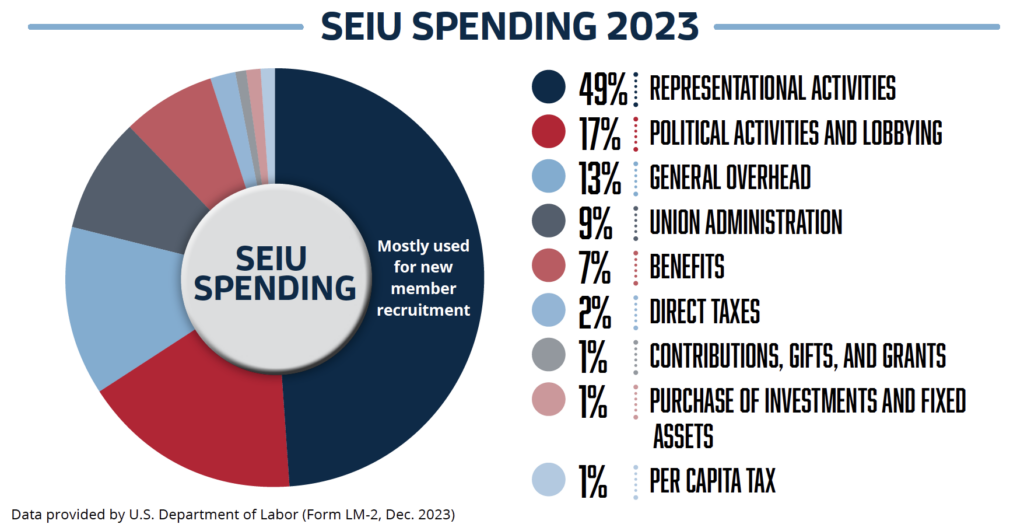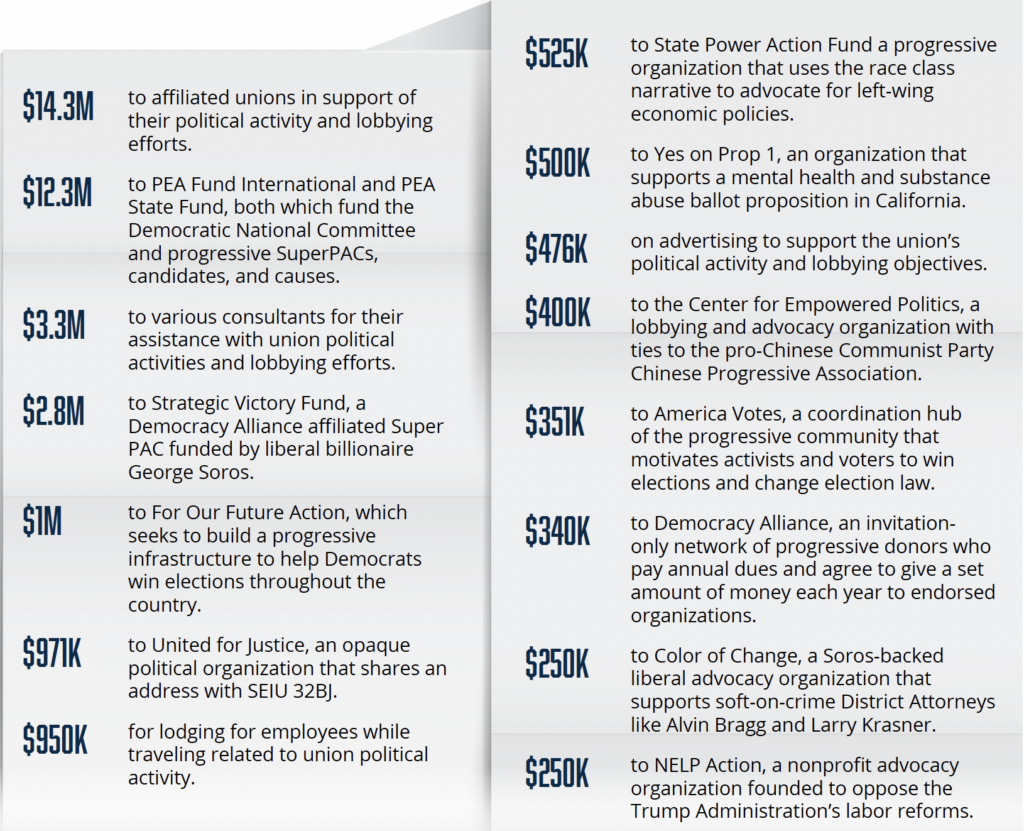The Service Employees International Union (SEIU) represents nearly 1.85 million workers in the public sector, healthcare, and property services industries. SEIU has made headlines this year for creating a firstof- its-kind fast food workers union, but the union’s goals go far beyond organizing new members. SEIU is a key player in left-wing politics and policy, recently backing a $20 per hour minimum wage in California and pledging $200 million to help re-elect President Joe Biden.
As a union that represents employees in both the public and private sector, SEIU is required to file a Form LM-2 annual financial report. Examining SEIU’s LM-2 report can help explain how the union is spending its money to achieve its organizing and political goals.
SEIU’s latest filing, which covers January 1, 2023 through December 31, 2023, reveals that most of the union’s spending went toward representational activities. Representing membership is the primary responsibility of a labor union, and this spending category accounted for 48.7 percent of all expenditures in 2023. However, most of SEIU’s representational spending was subcategorized as “support for organizing,” which indicates that this money may be directed to attracting new members rather than supporting its existing membership.
The union’s organizing efforts appear to be paying off, with SEIU adding 20,791 members over the past year. In turn, the union took in $13.4 million more in dues than in 2022. Despite gains in 2023, membership is still down by over 73,000 since 2017. SEIU’s finances are also worsening, with the union seeing a $49 million decrease in net financial position since 2021. To make matters worse, in each of the past three years, SEIU has spent more than it has taken in. In 2023, the union took in $287.9 million and spent $293.9 million.
Outside of representing current members and organizing new members, operating expenses accounted for the second largest share of spending. SEIU spent roughly $95 million on general overhead, administration costs, employee salaries and benefits, and investments to sustain operations during 2023. Union President Mary Kay Henry was SEIU’s top earner, bringing in $307,370. Secretary-Treasurer April Verrett was the second-largest earner with a salary of $284,431. Every SEIU executive earned over $225,000 in 2023, putting them in the top three percent of earners in the country.
Let’s Get Connected
We offer a free membership program, networking opportunities, and professional development scholarships to support qualifying public employees. Sign up today to receive updates from our team.

SEIU Political Spending
SEIU’s financial disclosure shows that politics were another top priority for SEIU. According to federal law, member dues can be used for a variety of political activities, such as issue advocacy, get-out-the-vote drives, election mailers, lobbying, and public marketing campaigns. The Janus v. AFSCME Supreme Court decision relieves nonmembers from the obligation to pay any dues or fees to the union as a condition of public employment. However, for those who remain SEIU members, Janus changes nothing about how union dues are spent: they are still routinely used for political purposes. In 2023, the union spent over $50 million on political activity and lobbying, with most of this money going to left-wing causes and organizations. Notably, SEIU gave:
